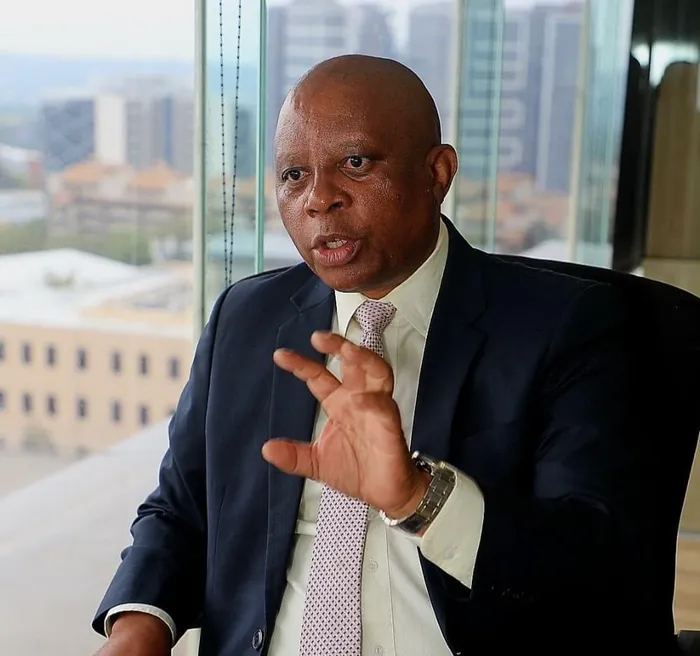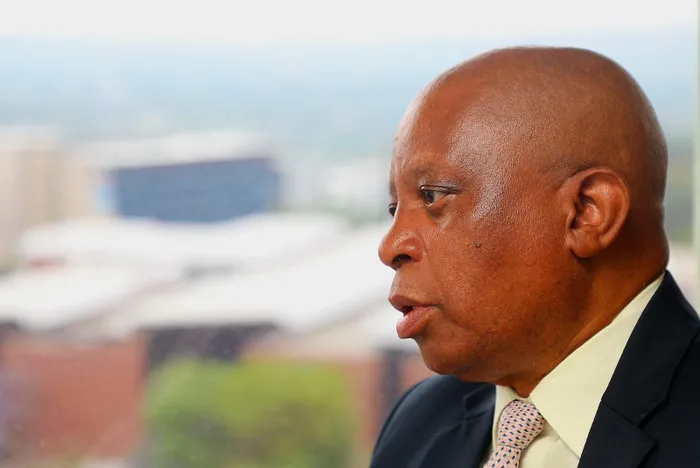
ActionSA leader Herman Mashaba claims his party was punished by voters in the May 2024 general elections.
Image: Timothy Bernard / Independent Newspapers
ActionSA leader Herman Mashaba claims that his party was “punished” by voters in the May 2024 general elections, however, he said the party will bounce back stronger in the upcoming 2026 local government elections.
Speaking in the aftermath of last year’s highly contested elections, Mashaba claimed that ActionSA, launched in 2020, had overstretched itself.
“I think we took the blame and accepted the results. At the time, a three-and-a-half-year-old party contesting all nine provinces was too much. We’ve understood it was not the right move,” he said during a sit-down interview with IOL News earlier this week.
In the elections, the African National Congress (ANC) secured 40.18% of the vote, translating to 159 seats in the National Assembly, a sharp drop from its previous majority.
The Democratic Alliance (DA) followed with 21.81% and 87 seats, while Jacob Zuma’s MK Party made a strong debut with 14.58% and 58 seats.
The Economic Freedom Fighters (EFF) obtained 9.52% and 39 seats.
Other parties included the Inkatha Freedom Party (IFP) with 3.85% (17 seats), the Patriotic Alliance (PA) with 2.06% (9 seats), the Freedom Front Plus (FF Plus) with 1.36% (6 seats), and ActionSA with 1.2%, also securing six seats.
Mashaba said ActionSA’s alliance with the DA was a major factor in its underperformance.
“I think our association with the DA was very toxic. There was something in my team I was unhappy with from the beginning, but I accepted the multi-party coalition,” he said.
ActionSA formally withdrew from the Multi-Party Charter (MPC), formerly the Moonshot Pact, in June 2024, pointing to a lack of trust, particularly over DA members allegedly considering a coalition with the ANC.
The MPC had been a pre-election agreement among opposition parties to unseat the ANC and EFF.
Reflecting on the results, Mashaba said the party had been “punished” by voters.
“Black voters punished us because they thought we would give our votes to the DA. On the other hand, white voters thought, ‘let them vote for the DA.’ That was a big mistake, but we have learned from it,” he said.
Mashaba admitted he had underestimated former president Jacob Zuma’s uMkhonto weSizwe (MK Party) before the elections.
“When Jacob Zuma announced his new party, I took it lightly. I did not take him as a threat. I take personal responsibility for that,” he said.
The businessman turned politician highlighted ActionSA’s success in recent by-elections in Soweto, where he said the party outperformed MK despite spending far less.
“The results from ward 130 in Soweto show we are bouncing back, particularly in Gauteng. We have not yet tested our strength in KwaZulu-Natal,” he said.
The 2024 elections marked a major shift in South African politics. With 16,025,198 votes cast and a turnout of 58.61%, the ANC lost its parliamentary majority for the first time in 30 years.
MK Party became the third-largest in Parliament and is now the largest party in KwaZulu-Natal with 47% of the provincial vote.
Political analyst Professor Theo Neethling said ActionSA’s poor showing stemmed from perception and organisational weaknesses.
“Many voters never saw ActionSA as truly independent from the DA. Outside Gauteng, the party remained largely unknown and lacked grassroots structures needed for national mobilisation,” Neethling said.
“The emergence of Zuma’s MK Party also drew support away from potential challengers like ActionSA.”

ActionSA leader Herman Mashaba claims voters punished his party in the May 2024 elections due to its perceived alliance with the Democratic Alliance but vowed to regroup for future contests.
Image: Timothy Bernard / Independent Newspapers
He added that ActionSA’s technocratic message on governance and economic reform failed to resonate with young and working-class voters, while limited financial and logistical capacity hampered outreach beyond urban centres.
Meanwhile, independent political analyst Goodenough Mashego said ActionSA faces challenges in attracting black voters due to its perceived association with white leadership.
“The party is seen as a DA breakaway. People see Mashaba and Michael Beaumont (Parliamentary leader) together, and they do not believe Mashaba has the power to govern,” he said. “MK Party’s all-black leadership appeals more to voters in this context.”
Mashaba added that his party has identified 30 to 44 municipalities to contest in the 2026 local government elections.
“We are not going to contest all municipalities. We will focus on those where no party can govern without us,” he said.
In KwaZulu-Natal, the party will concentrate on areas where it already has representation, such as Ethekwini, Newcastle, and KwaDukuza.
IOL Politics